
Strengthening science-policy interfaces in support of effective decision-making
The challenges faced by agrifood systems are complex and multi-faceted, and highlight the need for inclusion of knowledge from both the academic and non-academic spheres, as well as mechanisms to translate and integrate these insights and analyses to feed into policy and practice. However, integration of science and evidence into effective agrifood system decision-making processes remains a significant challenge. Science and evidence are essential for sound decision-making, but do not necessarily provide a singular course of action. Scientific findings may be limited by insufficient data, uncertainties, contrasting results, and can be contested. Decision-making is often influenced by a variety of both structural and behavioral drivers and barriers as well as numerous stakeholders with diverse values and with significant power asymmetries. The event will focus on supporting organized dialogue between scientists, policymakers and other relevant stakeholders in support of inclusive science- and evidence-based policy making for greater policy coherence, shared ownership and collective action for transforming agrifood systems. The FAO Science and Innovation Strategy, a key tool for the implementation of the FAO Strategic Framework 2022–31, focuses on three pillars including “Strengthening science and evidence-based decision-making”, which comprises “science-policy interfaces for agrifood systems strengthened” as one of its desired outcomes. Aligned with the Strategy, FAO is developing guidance for strengthening science-policy interfaces at the national level, helping to ensure that effective policy decisions are made based upon sufficient, relevant, and credible science and evidence, which will also be discussed at the event.
Speakers


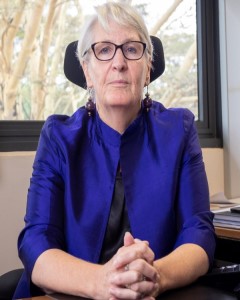
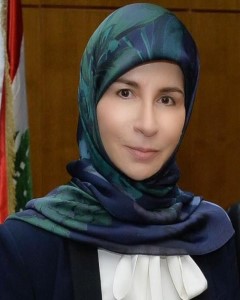
She has two decades of experience in agricultural research and development in Asia, Africa and the Middle East.
She is internationally known for her work on promoting neglected and underutilized crops, use of non-fresh water in agriculture, and empowerment of women in science.
Sélim Louafi is Deputy Director for Research and Strategy at the Centre International de Recherche Agronomique pour le Développement (Cirad) France. His main interest in on science and policy interface in the field of life sciences, more specifically agricultural biodiversity. From 2016 to 2020, he coordinated a multi-disciplinary project on the diversity of crop diversity management systems in West Africa. Previously, he served at the Secretariat of the International Treaty on Plant Genetic Resources, where he was in charge, amongst other things, of the implementation of the Multilateral System of Access and Benefit Sharing. He was also member of the Economic, Ethical and Social Committee of the French High Council on Biotechnology (2015-2020). He was part of the team of the first external evaluation of the International Platform on Biodiversity and Ecosystem Services (IPBES).
Dr Andrea Hinwood serves as the Chief Scientist of the United Nations Environment Programme. She is an environmental scientist with expertise in environmental exposures and impacts on human health. Dr. Hinwood has a PhD in environmental epidemiology and served as the first Chief Environmental Scientist at the Environment Protection Authority (EPA) in Victoria. She was Head of School, Natural Sciences, Edith Cowan University and held appointments as Deputy Chair of the EPA and as sessional member of the State Administrative Tribunal of Western Australia. Dr. Hinwood's career has included provision of advice to international fora on a wide variety of environmental matters.
Dr. Inaya Ezzeddine is a Pathologist, and member of the Lebanese Parliament since 2018. She chairs the Women and Children Parliamentary Committee & the SDG2030 Agenda Parliamentary Commission. She’s a member of the Public Health, Social Affairs, and the Foreign Affairs Committees; she served as Minister of State for Administrative Reform (2016-2018). Dr. Ezzeddine is a member of the IPU Standing Committee on Sustainable Development, and was recently appointed National Convener for Food System Transformation in preparation for the UNFSS+2 Summit. During her ministerial mandate she led the development of the National Anti-Corruption & Digital Transformation Strategies. Among her recent achievements is a gap analysis of the legislative framework in view of achieving SDG2. For her leadership and commitment to gender equality and women empowerment, and her achievements as a public servant, President Emmanuel Macron of France awarded her the Legion of Honor in 2020.

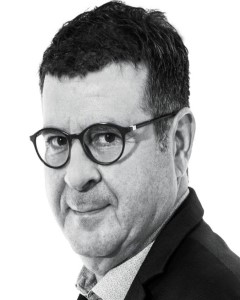
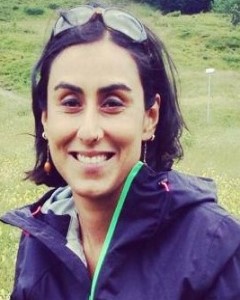
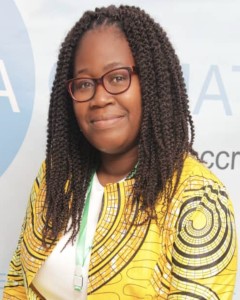
Jennifer Clapp is a Canada Research Chair in Global Food Security and Sustainability and Professor in the School of Environment, Resources and Sustainability at the University of Waterloo. She has published widely on the global governance of problems that arise at the intersection of the global economy, food security, and the natural environment. Professor Clapp is currently Vice-Chair of the Steering Committee of the High-Level Panel of Experts on Food Security and Nutrition (HLPE-FSN) of the UN Committee on World Food Security (CFS), a member of the International Panel of Experts on Sustainable Food Systems (IPES-Food), and a member of the Scientific Advisory Committee of the UN Food Systems Coordination Hub.
Development geographer, Patrick Caron is a specialist of food systems and territorial dynamics, with focus on controversy analysis and multi-scale governance. He is Vice-Chair of the CGIAR System Board, Director of the Montpellier Advanced Knowledge Institute on Transitions and Chair of Agropolis International. He joined CIRAD in 1988 where he has been Director for research from 2010 to 2016. He was the Chair of the High Level Panel of Experts (HLPE) of the UN Committee on World Food Security (CFS) from 2015 to 2019, and Vice President for International Affairs of the University of Montpellier from 2019 to 2023.
Ms. Sithembile “Thembi” Mwamakamba is the Director of Policy Research and Analysis at the Food, Agriculture and Natural Resources Policy Analysis Network (FANRPAN), an autonomous, multi-stakeholder policy network with a mandate to coordinate agriculture policy research, analysis and dialogue and promote the dissemination of policy relevant research results across Africa. She spearheads projects that enhance the connection between research, policy, and practice, ultimately driving increased investment and policy support for developing resilient food systems across Africa. Sithembile has an impressive track record in multi-country project implementation, stakeholder engagement, policy analysis, and climate change policy engagement. Notably, she serves as a valued member of the Global Food and Environment Institute Advisory Board. the AgMIP Steering Council, the Farming First Steering Committee, and VikelaEarth.

2006). Has experience in Clinical and Renal Nutrition. She has worked mainly on the following subjects: Nutritional Indices, Chronic Renal Failure, Hemodialysis, Peritoneal Dialysis, Conservative Treatment, Transplantation and other nephropathies. She also has experience in implementing quality in the nutrition sector. She was a lecturer at Associação Educacional Luterana BOM JESUS/IELUSC, in Joinvile/SC, in the subjects of Nutritional Assessment and Nutritional Education, and Supervisor of Compulsory Internships in the areas of Clinical and Social Nutrition.She also supervises Course Conclusion Work (TCC) at Associação Educacional Luterana BOM JESUS/IELUSC.She was a lecturer at Faculdade Alvorada, on the Nutrition Course, in the subject of Nutrition in Public Health and Epidemiology, in Brasília/DF.She is a Science and Technology Analyst at the Ministry of Science, Technology and Innovation (MCTI). She worked at the Secretariat of Science and Technology for Social Inclusion (SECIS), where she was part of the Working Group for Accountability (Ordinance N 35 of June 26, 2012), on Food and Nutritional Security (FNS), at the Secretariat of Applied Technologies (SETAP), in the Department of Technologies for Sustainable and Social Development Programs (DEPDS). She also worked at the Secretariat for Entrepreneurship and Innovation (SEMPI), in the General Coordination of Enabling Technologies (CGTH), with the theme of Health: Assistive Technologies, Rare Diseases and the Pharma-MCTIC Network.She specializes in Public Policies for Obesity.She is currently with the Secretariat of Science and Technology for Social Development (SEDES), in the General Coordination of Sovereignty and Food and Nutritional Security (CGSA) with
the theme of Adequate and Healthy Food, Agroecology and Food and Nutritional Security (FNS).
